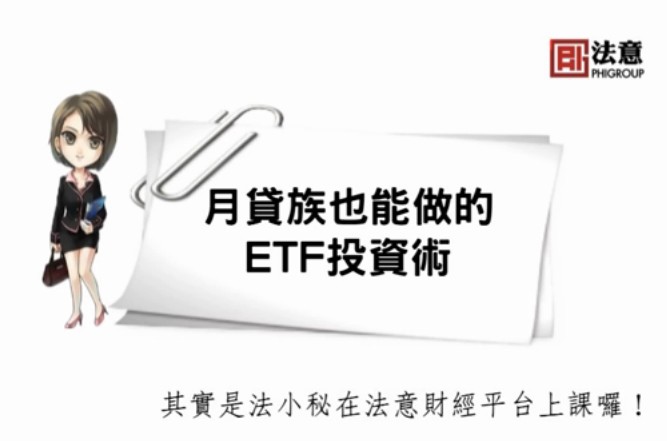這是巴菲特10月17日星期五在紐約時報上發表一篇文章的本文。
不管是美國或是其他地區,金融界真是一團亂。而且它的問題還延燒到一般大眾經濟,現在已經如噴油井般地不斷湧出問題。近期內,失業率將會上升,商業活動將衰退,新聞標題也會持續駭人。
所以,我已經開始買美國股票了。理由和早先我只願意持有美國政府公債的一樣(這並不包含我將用於慈善事業的波克夏持股)。如果股價繼續看起來這麼吸引人,我非屬波克夏的財富將很快的100%持有美國股票。
為什麼?
一個簡單規則驅使我進行買進策略:當別人貪婪的時候,我感到恐懼;當別人恐懼的時候,我就貪婪。很顯然地,現在恐懼已經蔓延,即使是經驗豐富的老手也感受到這樣的氣氛。當然,投資者要很留意高槓桿本質或企業競爭力較弱的問題。但是擔心美國境內許多體質健全的公司長期經濟成長是沒有道理的。這些企業的確會遭受到暫時性的獲利停頓,但他們總是有發生這種事的時候。可是大部分大型的公司將未來的5年、10年或20年時間獲利創下新高紀錄。
在這點上容我再說清楚一點:我不能預測股票市場上的短期波動。關於從現在開始的一個月或一年內股價將會變得更高或更低,我可是一點也不知道。不過最可能的是,市場將會越走越高,基本上就是這樣,在繼續不理性或是經濟轉好前,市場就變好了。所以如果你繼續等待知更鳥叫,春天可能已經過去。
這裡有一些歷史紀錄:在經濟大蕭條時期,道瓊工業指數在1932年的7月8日創下41點的最低點,但經濟情況卻持續惡化,直到1933年3月羅斯福總統就任為止。在那段期間,市場早已經上揚了30%。或者再回想一下第二次世界大戰初期,當時在歐洲或太平洋地區的美軍狀況變得很糟。而在同盟國聯軍的命運轉向前,市場在1942年4月就落底,並開始轉好了。再一個,1980年的初期,買股票的最好時機就是在通貨膨脹狂漲與經濟非常糟糕的時候。短期間,壞消息就是投資者的好朋友。它讓你能以明顯偏低的價格,買到美國未來的一部分。
長期來說,股市都會好的。在20世紀裡,美國持續參與了兩場世界大戰以及其他痛苦創傷且花費龐大的軍事衝突;經濟大蕭條;12次以上的經濟衰退及金融恐慌;石油危機;流感病毒的大流行以及遭貶謫的總統辭職下台(註:指尼克森的水門事件)。然而這段期間,道瓊工業指數仍從66點上漲到11497點。
也許你們認為道瓊在本世紀漲了這麼多,投資人要損失金錢是不可能的。但是就是有人賠錢。不幸的這些投資人,只會在他們覺得安心的時候才買股票,而在報紙頭條令他們不舒服時,持續賣出。
現在持有約當現金的人們感到安心。他們不應該這麼做的。他們選擇了一個長期來說非常糟糕的資產,一項實際上沒有任何報酬且確定貶值的資產。事實上,政府的政策為減緩目前的危機所造成的效果,將可能引起通貨膨脹,也加速了現金實質上的貶值。
在未來10年,持有股票幾乎確定勝過持有現金,也許會贏過相當可觀的程度。那些現在緊抓現金不放的投資者就是在賭他們能在之後有效率的選擇買進時點。在等著好消息帶來的安全感時,他們正是忽略了冰上曲棍球選手韋恩.雷
茨基的建議:「我會溜到球將會出現的地方而不是已經出現的。」
我不喜歡對股票市場表示意見,並且再一次的強調我並不知道短期間市場會怎麼走。然而,我會遵從一間開在空蕩蕩的銀行大樓中的餐廳所廣告著:「你花的錢會跟你所感受到的一樣」(Put your mouth where your money was.)(註)。今天,我的資金流向,跟我所說的方向並無二致 — 都是買進股票。
(華倫巴菲特,波克夏海瑟威控股公司董事長)
(註:廣告原意應指你花了多少錢,跟你吃到的東西是等同價值的,這裡巴菲特應是雙關引用Put your money where your mouth is 這個習慣用語,意指用實際行動證明所說的)
原文:
Buy American. I am. By Warren E. Buffett
This is the text of an opinion piece written by Warren Buffett and published in the New York Times on Friday, October 17, 2008:
Buy American. I am.
By Warren E. Buffett
The financial world is a mess, both in the United States and abroad. Its problems, moreover, have been leaking into the general economy, and the leaks are now turning into a gusher. In the near term, unemployment will rise, business activity will falter and headlines will continue to be scary.
So ... I’ve been buying American stocks. This is my personal account I’m talking about, in which I previously owned nothing but United States government bonds. (This description leaves aside my Berkshire Hathaway holdings, which are all committed to philanthropy.) If prices keep looking attractive, my non-Berkshire net worth will soon be 100 percent in United States equities.
Why?
A simple rule dictates my buying: Be fearful when others are greedy, and be greedy when others are fearful. And most certainly, fear is now widespread, gripping even seasoned investors. To be sure, investors are right to be wary of highly leveraged entities or businesses in weak competitive positions. But fears regarding the long-term prosperity of the nation’s many sound companies make no sense. These businesses will indeed suffer earnings hiccups, as they always have. But most major companies will be setting new profit records 5, 10 and 20 years from now.
Let me be clear on one point: I can’t predict the short-term movements of the stock market. I haven’t the faintest idea as to whether stocks will be higher or lower a month — or a year — from now. What is likely, however, is that the market will move higher, perhaps substantially so, well before either sentiment or the economy turns up. So if you wait for the robins, spring will be over.
A little history here: During the Depression, the Dow hit its low, 41, on July 8, 1932. Economic conditions, though, kept deteriorating until Franklin D. Roosevelt took office in March 1933. By that time, the market had already advanced 30 percent. Or think back to the early days of World War II, when things were going badly for the United States in Europe and the Pacific. The market hit bottom in April 1942, well before Allied fortunes turned. Again, in the early 1980s, the time to buy stocks was when inflation raged and the economy was in the tank. In short, bad news is an investor’s best friend. It lets you buy a slice of America’s future at a marked-down price.
Over the long term, the stock market news will be good. In the 20th century, the United States endured two world wars and other traumatic and expensive military conflicts; the Depression; a dozen or so recessions and financial panics; oil shocks; a flu epidemic; and the resignation of a disgraced president. Yet the Dow rose from 66 to 11,497.
You might think it would have been impossible for an investor to lose money during a century marked by such an extraordinary gain. But some investors did. The hapless ones bought stocks only when they felt comfort in doing so and then proceeded to sell when the headlines made them queasy.
Today people who hold cash equivalents feel comfortable. They shouldn’t. They have opted for a terrible long-term asset, one that pays virtually nothing and is certain to depreciate in value. Indeed, the policies that government will follow in its efforts to alleviate the current crisis will probably prove inflationary and therefore accelerate declines in the real value of cash accounts.
Equities will almost certainly outperform cash over the next decade, probably by a substantial degree. Those investors who cling now to cash are betting they can efficiently time their move away from it later. In waiting for the comfort of good news, they are ignoring Wayne Gretzky’s advice: “I skate to where the
puck is going to be, not to where it has been.”
I don’t like to opine on the stock market, and again I emphasize that I have no idea what the market will do in the short term. Nevertheless, I’ll follow the lead of a restaurant that opened in an empty bank building and then advertised: “Put your mouth where your money was.” Today my money and my mouth both say equities.
Warren E. Buffett is the chief executive of Berkshire Hathaway, a diversified holding company.
- Oct 21 Tue 2008 10:45
巴菲特:我已經在買股票了 / 歐斯麥
close
全站熱搜
 留言列表
留言列表
發表留言




 留言列表
留言列表
